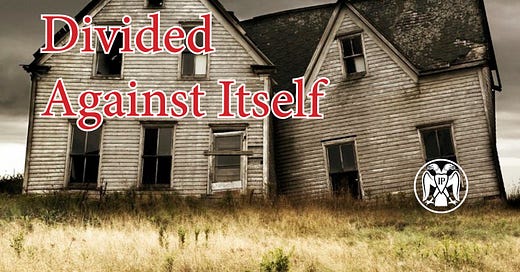As I write this, the Canadian Broadcasting Corporation has just publicly complained that Twitter has listed them as publicly funded.
Our journalism is impartial and independent. To suggest otherwise is untrue. That is why we are pausing our activities on @Twitter.1
The issue is not that they’re publicly funded,2 it’s that being marked as such by Twitter amounts to being called a government shill. Which they obviously are. The CBC’s “impartiality” consists in suing the Conservative party during an election—again, justified as “defending the independence of its journalists and journalism”.3 This retarded mantra of “independence” can only be plausible in a setting where people are bamboozled by how political authority works. As it is, the CBC expects us to believe that they are independent of government because the government says so.4
This ouroboros of political authority—where the law gets its force from the simple fact of words being written on a piece of paper—is not limited to liberal understandings; even wide swathes of the radical right have bought into rule of law and popular sovereignty. This is based on a deep misunderstanding of political authority. Too often we think of authority as something that exists propositionally, by virtue of meeting a standard, rather than as something ontologically primitive—something that puts the standard in play in the first place and defines the null hypothesis.5 Those who think about authority propositionally end up as passive spectators who cry helplessly as their enemies define the terms of the argument and then nullify that argument even when they lose. This antinomianism runs deep, and now manifests itself at every level of our social life.
One way this lawlessness manifests is in popular sovereignty. We should be clear that by popular sovereignty we don’t mean “having the people’s interests at heart” because this is not sovereignty, nor is it even a condition of authority because it’s a normative standard and authority is authority to set the normative standard. The father makes the rules in his own home. Doesn’t this open us up to tyranny? Not that that is the point—but no, this serves the “common good” too. When the father is held to any standard other than that of his own father, he is judged by the standard of the women and children under him.6 Pretty soon you get paedocracy, rule by children, which is a good characterization of where we are today.7 But popular sovereignty—the idea that the ruled can also be ruler—is not new. It was there at the founding of America.
I want to be clear that I like America and always have. When I was growing up in Canada, I once asked my parents why Americans were so much better than us. This is a ridiculous sentiment, but my six-year-old logic went something like this: America makes and does everything cool, so they must be the best. In the fullness of time, I have come to appreciate the deep and abiding root of Canadian identity and I regard it as superior to basically every other identity.8 But I am not anti-American in any way. That said, America is where it is, and not for no reason. And not uniquely either—we are all drowning in the same filth. So take what follows as a friendly but honest look in the mirror at our shared Anglo culture, a culture which has at its bottom something unfathomably based.




